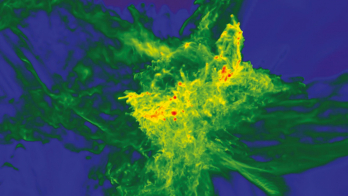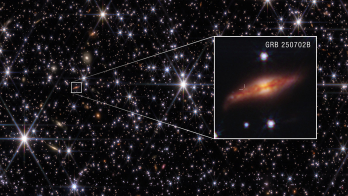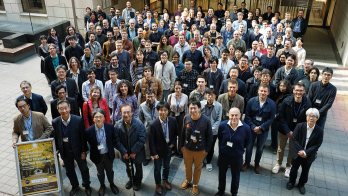Edited by Emma Sanders
Millennium ‘delayed’ by space mission to Saturn
Hold the champagne! Millennium celebrations throughout the world will be delayed. The culprit is the Cassini-Huygens space mission, which flew by the Earth in August in order to pick up speed for its outward journey to Saturn. The energy gained by Cassini was lost by the Earth, thus slowing down its orbital motion. However, astronomers shouldn’t be criticized as party poopers – celebrations will only have to wait an extra million millionth of a second.
FUSE lift-off
A new satellite to explore the ultraviolet universe the Far Ultraviolet Spectroscopic Explorer (FUSE) was launched on 24 June. It will investigate the origin and evolution of the lightest elements hydrogen and deuterium.
Deuterium is a valuable indicator of what happened in the early universe, because its formation depended on the temperature and density at that time. The amount of deuterium has been decreasing ever since because it is recycled by nuclear fission in stars. A measure of the relative abundance of hydrogen and deuterium can reveal valuable information about the conditions just a few seconds after the Big Bang.
FUSE will also be used to observe the composition of interstellar gas and the chemical evolution of galaxies. The satellite will observe the far-ultraviolet spectrum from 90 to 120 nm with more than 10 000 times the sensitivity previously attainable.
FUSE was built by collaborators in France, Canada and the US and is part of the NASA Origins programme. Future Origins telescopes include the successor to the Hubble the Next Generation Space Telescope, currently programmed for launch in 2006.








